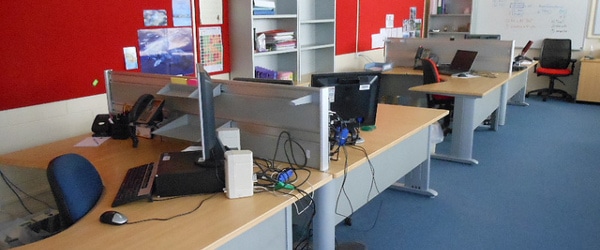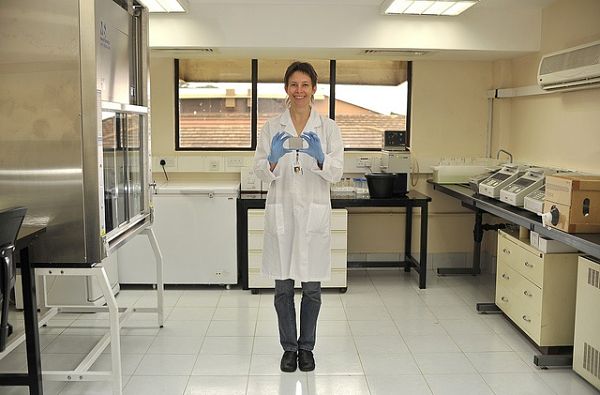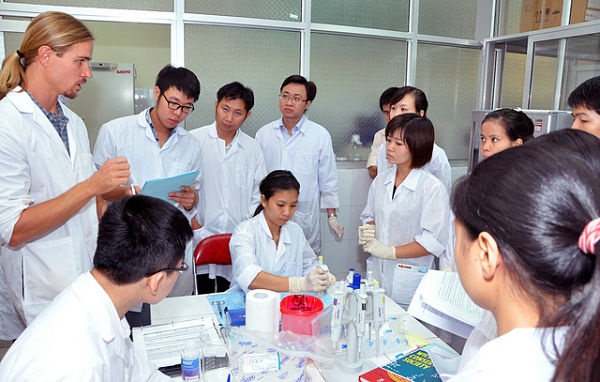Liquid Nitrogen Safety In The Lab: 10 Tips To Avoid LN2 Dangers
Liquid nitrogen isn’t just cool, it’s potentially deadly. We share our 10 tips for staying safe while working with liquid nitrogen.
Join Us
Sign up for our feature-packed newsletter today to ensure you get the latest expert help and advice to level up your lab work.
Search below to delve into the Bitesize Bio archive. Here, you’ll find over two decades of the best articles, live events, podcasts, and resources, created by real experts and passionate mentors, to help you improve as a bioscientist. Whether you’re looking to learn something new or dig deep into a topic, you’ll find trustworthy, human-crafted content that’s ready to inspire and guide you.


Liquid nitrogen isn’t just cool, it’s potentially deadly. We share our 10 tips for staying safe while working with liquid nitrogen.

Are you trying to prepare for an interview but not sure what sort of questions you’ll get asked? Check out our top 10 Postdoc interview questions to help you prepare.

Thinking of doing a PhD? Here are some essential considerations from a PhD graduate to help you decide whether or not getting a PhD is worth it.

We show you how to read a scientific paper efficiently to make the most of your reading time.

Getting science research grants is becoming increasingly competitive and difficult. Read our top tips to maximize your chances of success.

We show you how to get organized and develop a system to stay on top of your literature reviews.

I previously wrote an article for BsB detailing my experience transitioning from lab-bench research into research administration roles after a particularly unhappy experience as a postdoc. About a year into my second research admin role some restructuring occurred and I decided to try to move back into the lab. I am now working again as…

Most of us hate cleaning and are often hard pressed to find time to clean our homes, never mind our laboratory space. However, an annual spring clean and maintenance of a regular cleaning rota/regime will contribute to an efficient, organized and harmonious lab environment. This is increasingly important in communal lab spaces where multiple staff…

Stimulation of cells/tissue with a given stimulus (e.g., a cytokine) is a common experimental setup in any cell biology lab. The cellular response to the external stimulus e.g., the activation/deactivation of intracellular signaling pathways and/or the secretion of proteins is often the research goal, and there are a number of different methods that you can use to analyze such…

The relationship you have with your supervisor during the course of your PhD is a critical one. Like all other personal or professional relationships it can range from being harmonious to disastrous. Choosing a supervisor you think will work well with you in the first place is important, however it can be difficult to foresee…

You’re a senior grad student or postdoc, and you’ve done more PCRs than you can count. A new student has joined your lab, and you’ve been charged with training them on PCR. You don’t want to lead him/her astray, but it’s hard to remember the parts that you struggled with in your early days. This…

Up until last year I had been working in scientific research for just over six years. The insecurity of a career in academia had always niggled at me. About eight months into a very stressful postdoc position that didn’t seem to be going anywhere, I felt my heart wasn’t in it anymore and a change…
Personal Protective Equipment (PPE) such as your lab coat and gloves are an essential piece of kit when working in a laboratory; however, it is important to know when it is inappropriate to use PPE. 1) Don’t wear your lab coat, gloves or other PPE in offices or dining areas. They may have become contaminated…

The ELISA (enzyme-linked immunosorbent assay) is a rapid method used to detect the amount of a protein of interest in clinical and experimental samples. There are a number of ELISA formats to choose from, depending on your research needs. These include direct ELISA, indirect ELISA, competitive ELISA and sandwich ELISA. We have previously covered the…

The correct documentation and storage of your laboratory samples may be a tedious process, but it will make your life a lot easier in the long run. The last thing any scientist wants when trying to complete a key last experiment for a publication is not being able to find or identify a critical sample….

LB medium is a staple in virtually every lab. It’s commonly used to propagate E. coli, and as such will be used frequently by any lab that does cloning. Chances are, LB broth or plates were one of the first things you learned to make as a newbie in the lab. Here are a few…

Keeping up with the latest developments in your field of research is important whether you are taking a sabbatical to travel the world or your funding has finally dried up. Whatever your situation, it is good to maintain a broad working knowledge of your field of interest and not leave yourself a mountain of reading…

Every scientist, at one time or another, has avoided meetings with their PI. They are, however extremely important in shaping the direction and progress of your project. Having regular productive meetings with your PI will help maintain a positive working relationship and contribute to the success of your project. Keep the following in mind when…
The very idea of standing up and giving an oral presentation at a conference gives even the most confident of us butterflies. Additionally, I don’t know many scientists who find the thought of spending hours working on a powerpoint presentation exactly thrilling. However, there are many benefits to presenting your work at a conference. First…

The eBook with top tips from our Researcher community.